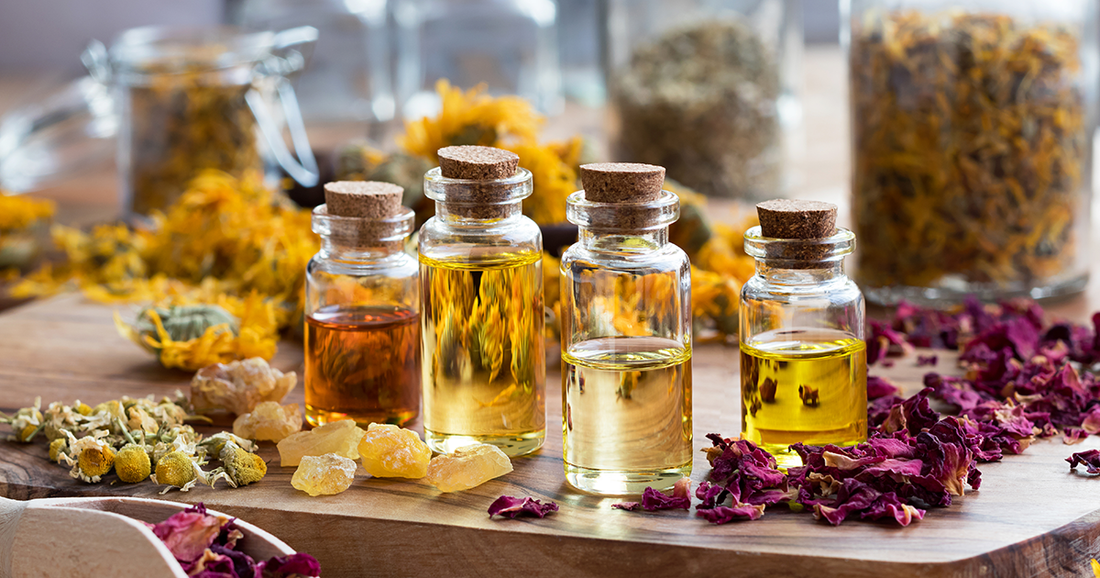Essential oils have gained popularity in recent years for their potential health benefits and use in aromatherapy. While essential oils can be a natural and effective alternative to traditional medicine, it's important to understand their safety guidelines and precautions. In this article, we will discuss the essential oils safety guidelines and precautions that you should keep in mind.
Essential oils and skin safety
Essential oils are highly concentrated plant extracts, which means they should be used with caution when applied topically. When using essential oils on your skin, it's important to dilute them properly to prevent irritation, redness or even burns. Dilution involves adding carrier oil, such as coconut oil, almond oil, or jojoba oil, to the essential oil to make it less potent. The dilution ratio depends on the essential oil and the intended use, but a general rule of thumb is to use no more than 3-5 drops of essential oil per teaspoon of carrier oil.
Before applying an essential oil to your skin, it's also important to do a patch test to make sure you're not allergic or sensitive to it. To do a patch test, apply a small amount of the diluted essential oil to the inside of your wrist or behind your ear and wait for 24 hours to see if any reaction occurs. If you experience any itching, redness, or swelling, do not use the essential oil and seek medical attention if necessary.
Essential oils and inhalation safety
Essential oil inhalation is a common technique for aromatherapy and respiratory problems. When inhaling essential oils, you should exercise caution, especially if you have asthma or respiratory issues. It's best to speak with a healthcare provider before using essential oils for inhalation because they may irritate certain people or even set off an asthma attack.
It's vital to utilize a diffuser or vaporizer made exclusively for essential oils when inhaling them. Avoid breathing in essential oils straight from the bottle because doing so can irritate your lungs and nasal passages. Also, avoid using essential oils for extended periods in enclosed settings since this may result in headaches or other negative side effects.
Essential oils and ingestion safety
It is not advised to consume essential oils unless under the supervision of a trained aromatherapist or medical expert. Due to their high concentration, essential oils can be harmful when consumed in large quantities. Moreover, some essential oils may interact negatively with some drugs or worsen certain medical conditions.
Use only food-grade essential foils and adequately dilute them if you decide to consume essential oils. Only a few drops of essential oil should be used, and it's crucial to start out with minimal amounts to determine how your body will react. Never consume essential oils undiluted or in large doses, and always seek the advice of a qualified aromatherapist or medical professional before doing so.
Essential oils and storage safety
Proper storage of essential oils is vital for maintaining their potency and safety. Essential oils should be stored in a cool, dry place away from direct sunlight, heat, or humidity. Do not store essential oils in plastic containers, as the oils can dissolve the plastic and become contaminated. Instead, store essential oils in dark glass bottles with tight-fitting lids to prevent oxidation and evaporation.
It's also important to keep essential oils out of reach of children and pets, as some essential oils can be toxic when ingested or absorbed through the skin. If a child or pet accidentally ingests essential oils, seek medical attention immediately.
Essential oils and pregnancy/breastfeeding safety
Pregnant or breastfeeding women should exercise caution when using essential oils, as some oils may be harmful to the developing fetus or infant. It's best to consult with a healthcare professional before using essential oils during pregnancy or breastfeeding.
Essential oils and medication interactions
Some essential oils can interact with medications, either enhancing or inhibiting their effects. If you're taking medication, it's important to consult with a healthcare professional before using essential oils to avoid potential interactions.
Essential oils and phototoxicity
When exposed to sunshine, some citrus essential oils, including bergamot and lemon, can become phototoxic. Burns, discoloration, or skin irritability may result from this. It's crucial to avoid using these oils on the skin before going outside in the sun and to wait at least 12 hours before doing so.
Essential oils and pets
Certain essential oils can cause undesirable reactions in pets, especially cats, such as vomiting, diarrhea, or respiratory distress. The fur or skin of pets should never be exposed to essential oils, and this is very important.
In conclusion, essential oils can be a natural and potent substitute for conventional medicine, but it's crucial to abide by safety precautions and recommendations.
FAQ’s
Q: Can essential oils be used safely during pregnancy?
A: Pregnant women should use caution when using essential oils, as some oils may be harmful to the developing fetus. It's best to consult with a healthcare professional before using essential oils during pregnancy to ensure they are safe for both the mother and the baby.
Q: Can essential oils be ingested safely?
A: Ingestion of essential oils is not recommended unless under the guidance of a healthcare professional or a certified aromatherapist. Essential oils are highly concentrated and can be toxic when ingested in large amounts. Some essential oils can also interact with medications or have adverse effects on certain medical conditions.
Q: How can I determine if I'm allergic to an essential oil?
A: Before applying an essential oil to your skin, it's important to do a patch test to make sure you're not allergic or sensitive to it. To do a patch test, apply a small amount of the diluted essential oil to the inside of your wrist or behind your ear and wait for 24 hours to see if any reaction occurs. If you experience any itching, redness, or swelling, do not use the essential oil and seek medical attention if necessary.

